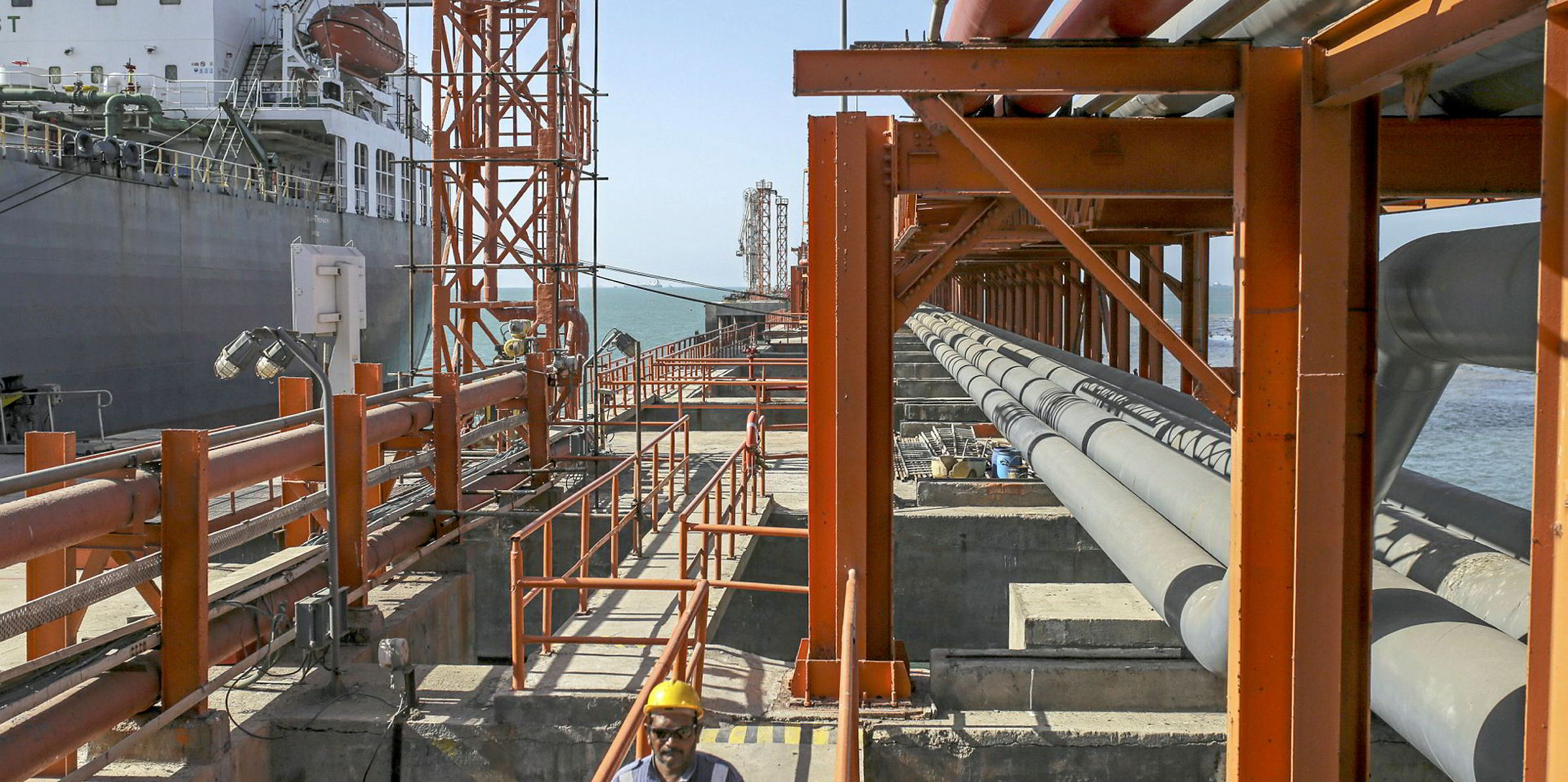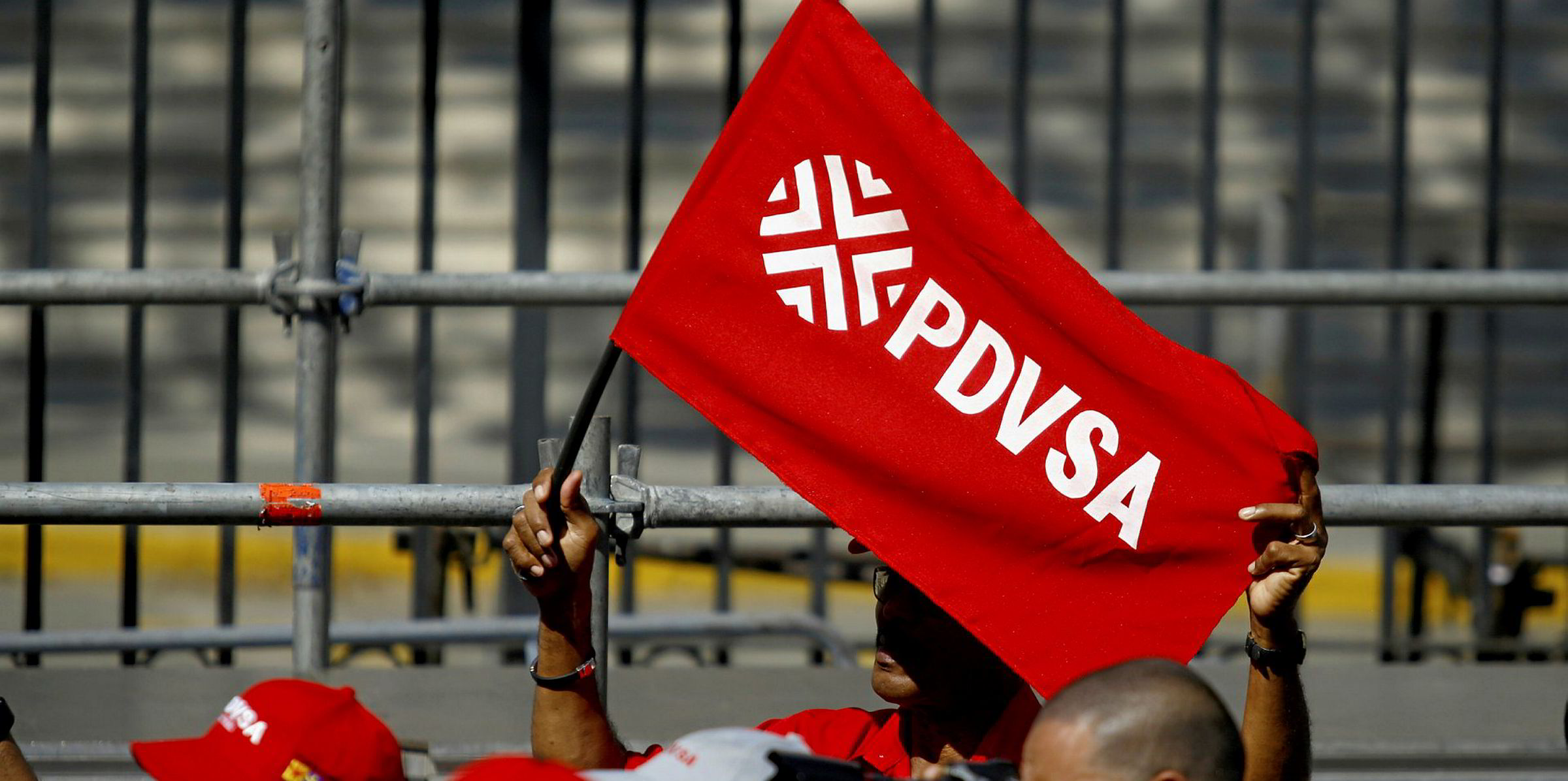Torm and Latvian Shipping Co (LSC) have taken the largest shares of the Venezuelan product tanker trade after the US imposed sweeping sanctions on the South American nation’s oil sector.
From 1 February to the end of last week, seven MR tankers in the LSC fleet completed shipments of petroleum products to Venezuela, according to VesselsValue.
These were the 50,695-dwt Elandra Corallo (built 2008); 52,600-dwt Ance, Jurkalne and Puze (all built 2006), Piltene (built 2007); and Ainazi and Salacgriva (both built 2008).
Five vessels owned by Torm — the 36,200-dwt Torm Gyda (built 2009), 37,000-dwt Torm Saone (built 2004), 46,000-dwt Torm Gerd (built 2002), 50,000-dwt Torm Laura (built 2008) and 50,000-dwt Torm Anabel (built 2012) — also shipped refined products to Venezuela.
In total, 35 product tanker shipments to and 25 from the Opec member were recorded in this time span.
The average shipping distance of the Venezuelan product tanker trade is growing, with US firms being replaced by their counterparts farther afield as the country’s largest petroleum trading partners.
According to Kpler, sanctions-hit Venezuela is turning to India and Spain for supplies of refined products, while Russia may also be increasing exports to Venezuela via Ventspils, Latvia.
India’s Reliance Industries confirmed it has some shipments of petroleum products to Venezuela to offset its bills for buying crude.
Risk premiums
Washington’s sanctions mainly target US firms trading with Petroleos de Venezuela (PDVSA), the country’s state-owned oil firm, while foreign companies are implicitly allowed to continue their Venezuelan trade in non-US currencies.
Transporting Venezuelan cargoes is risky and a premium is offered to take the fixture
Peter Sand
As the sanctions do not explicitly cover the maritime transport sector, some tanker owners are still willing to ship from and to Venezuela as long as PDVSA is not the charterer of their ships.
“Transporting Venezuelan cargoes is risky and a premium is offered to take the fixture,” Bimco’s chief shipping analyst Peter Sand said.
“As the market is not full of other options that are equally profitable … it becomes more attractive for those operators and owners with a higher risk appetite to cater for this part of the market.”
Attractive long hauls
“In addition, very long hauls are offered for the cargoes, making it even more attractive.”
Premiums for spot product tanker fixtures in the Venezuelan trade can be as large as 50 Worldscale points lately, with some freight transactions done in euros as a precaution, according to a broker.
When asked about its activity in the country, Torm said in an emailed statement: “We have been regularly trading to and from Venezuela for the past several years.”
The Danish shipowner added it “always trades in full compliance with all applicable sanctions including adherence to” the US Office of Foreign Assets Control’s Specially Designated Nationals and Blocked Persons List.
LSC, a subsidiary of trading giant Vitol, has yet to respond to requests for comment.






